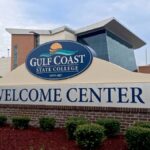
Image Created using Adobe Firefly
As neurodiversity is celebrated, there are also struggles that come with learning in an environment geared toward typical minds.
April is designated as Autism Acceptance Month and is a time in the autistic and neurodivergent community have a platform to tell their stories. The term Neurodivergent is used to describe anyone who has what is considered an atypical thinking pattern such as those on the autism spectrum, those with ADHD, dyslexia, and other so-called “pervasive developmental disorders.”
Many who are “neurotypical”, or those with a typical thinking pattern and those who are neurodivergent have generally gotten education on autism from organizations such as Autism Speaks which has no board members or members of the company have an autism diagnosis. This has led to several misconceptions about what neurodiversity is as well as who we as neurodivergent people are.
This has changed in recent years due to the creation of organizations such as the Autistic Self Advocacy Network whose members are all on the autism spectrum as well as online communities where neurodiverse people can share their stories freely and openly without criticism as well as reach those who are curious about autism such as the Asperger’s and Autism Forum as well as their own subreddit.
Having been diagnosed with Asperger’s syndrome myself, this is a very important time to be an ambassador to those who may not understand neurodiversity as well as advocate for myself and others. While we have been taking back control of our own stories and have been able to advocate for ourselves it has become almost taboo for us to admit that while we have gained more acceptance there are still challenges that come with learning in a neurotypical environment.
Even those who would be seen as being brilliant may still struggle with other aspects of school or campus life in general. I overcame my anxiety in order to speak with Bonnie Farr who is the student accessibility resources coordinator here at Gulf Coast State College. I asked about resources that may be helpful to those who are having a hard time. She said that “When they come in, we talk about what are the barriers in the academic environment that they have and then we discuss resources and services that may be available to sort of knock down those barriers.”
When I asked about what some of those resources were specifically, she said “It is all on a case-by-case basis things like extended testing time, testing in a more quiet less distracting environment, different forms of note taking support and for accessibility issues such as if you have vision issues there are materials with large print or large font.” She also stated that there is a lot of technology and phone apps that they try to direct students to as well. She said the resources are always changing and expanding as more data becomes available and new technologies and advancements in artificial intelligence such as Chat GPT.
She said that a student who is dyslexic told her about a font which is a Chrome extension called “open dyslexic” that helped her to navigate things better. One thing she made clear was “we look to our students to help us find those things as well.”
Having the ability to celebrate that the way neurodivergent people think is “different not less” a quote attributed to Dr. Temple Grandin, a well-known autism advocate, is a huge step in the right direction toward autism acceptance and the acceptance of all neurodivergent thinkers. If you suspect you may be neurodivergent there are plenty of others here at Gulf Coast State College as well as in the world as a whole. According to the CDC, in the United States alone roughly 1 in 36 children are diagnosed with autism and roughly 17% have a developmental disability of some kind. There are many people and resources with which to find both help and acceptance.









